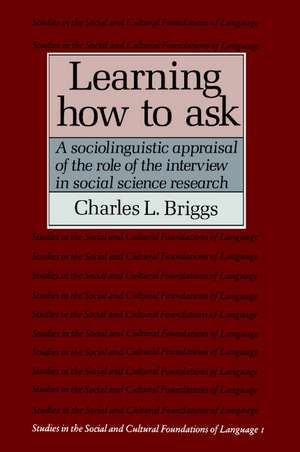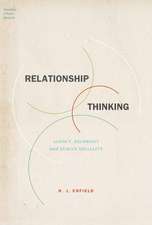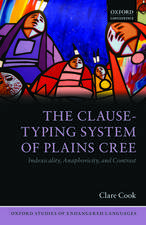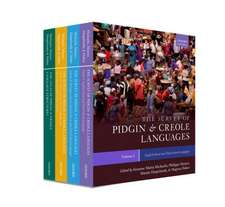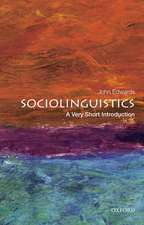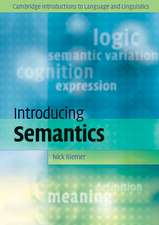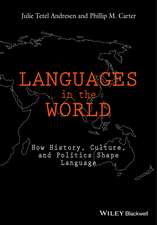Learning How to Ask: A Sociolinguistic Appraisal of the Role of the Interview in Social Science Research: Studies in the Social and Cultural Foundations of Language, cartea 1
Autor Charles L. Briggsen Limba Engleză Paperback – 24 iul 1986
Din seria Studies in the Social and Cultural Foundations of Language
- 11%
 Preț: 478.51 lei
Preț: 478.51 lei - 11%
 Preț: 524.04 lei
Preț: 524.04 lei -
 Preț: 332.71 lei
Preț: 332.71 lei -
 Preț: 376.19 lei
Preț: 376.19 lei -
 Preț: 432.12 lei
Preț: 432.12 lei -
 Preț: 281.98 lei
Preț: 281.98 lei -
 Preț: 290.45 lei
Preț: 290.45 lei - 11%
 Preț: 522.72 lei
Preț: 522.72 lei -
 Preț: 319.90 lei
Preț: 319.90 lei -
 Preț: 303.98 lei
Preț: 303.98 lei -
 Preț: 176.88 lei
Preț: 176.88 lei -
 Preț: 405.35 lei
Preț: 405.35 lei -
 Preț: 322.62 lei
Preț: 322.62 lei -
 Preț: 385.23 lei
Preț: 385.23 lei -
 Preț: 456.72 lei
Preț: 456.72 lei -
 Preț: 323.56 lei
Preț: 323.56 lei -
 Preț: 399.59 lei
Preț: 399.59 lei -
 Preț: 307.62 lei
Preț: 307.62 lei -
 Preț: 295.08 lei
Preț: 295.08 lei -
 Preț: 286.13 lei
Preț: 286.13 lei -
 Preț: 372.94 lei
Preț: 372.94 lei - 11%
 Preț: 430.40 lei
Preț: 430.40 lei
Preț: 360.93 lei
Nou
Puncte Express: 541
Preț estimativ în valută:
69.06€ • 72.11$ • 57.16£
69.06€ • 72.11$ • 57.16£
Carte tipărită la comandă
Livrare economică 05-19 aprilie
Preluare comenzi: 021 569.72.76
Specificații
ISBN-13: 9780521311137
ISBN-10: 0521311136
Pagini: 176
Ilustrații: 1 b/w illus. 1 map
Dimensiuni: 148 x 228 x 17 mm
Greutate: 0.25 kg
Editura: Cambridge University Press
Colecția Cambridge University Press
Seria Studies in the Social and Cultural Foundations of Language
Locul publicării:Cambridge, United Kingdom
ISBN-10: 0521311136
Pagini: 176
Ilustrații: 1 b/w illus. 1 map
Dimensiuni: 148 x 228 x 17 mm
Greutate: 0.25 kg
Editura: Cambridge University Press
Colecția Cambridge University Press
Seria Studies in the Social and Cultural Foundations of Language
Locul publicării:Cambridge, United Kingdom
Cuprins
Foreword Aaron V. Cicourel; Preface; 1. Introduction; 2. The setting: Mexicano society and Córdova, New Mexico; 3. Interview techniques vis-á-vis native metacommunicative repertoires; or, on the analysis of communicative blunders; 4. The acquisition of metacommunicative competence; 5. Listen before you leap: toward methodological sophistication; 6. Conclusion: theoretical quagmires and 'purely methodological' issues; Notes; References; Index.
Recenzii
'More than any other recent work of a self-proclaimed hermeneutic/phenomenological 'reflexive' or self-reflective nature, Learning How to Ask avoids both the merely autobiographical, and the negative and unproductively relativistic form of critique of the fieldwork enterprise. Rather, it applies the tools of speech event analysis that have emerged from the cumulative formulations of a number of traditions of research and teaches us 'how to ask' with a new, sophisticated level of understanding. An argument about methodological refinement, it is at the same time a theoretical contribution to the linguistic anthropology of a foundational speech event in social science.' Michael Silverstein, University of Chicago
'I would call this book 'brilliant' if the word were not so overused. Briggs's work is ethnography at its best, both critical and constructive. He is critically alert to the ways in which modes of inquiry condition what the fieldworker finds, and constructive in showing a way to arrive at grounded understanding.' Dell H. Hymes, University of Pennsylvania
'I would call this book 'brilliant' if the word were not so overused. Briggs's work is ethnography at its best, both critical and constructive. He is critically alert to the ways in which modes of inquiry condition what the fieldworker finds, and constructive in showing a way to arrive at grounded understanding.' Dell H. Hymes, University of Pennsylvania
